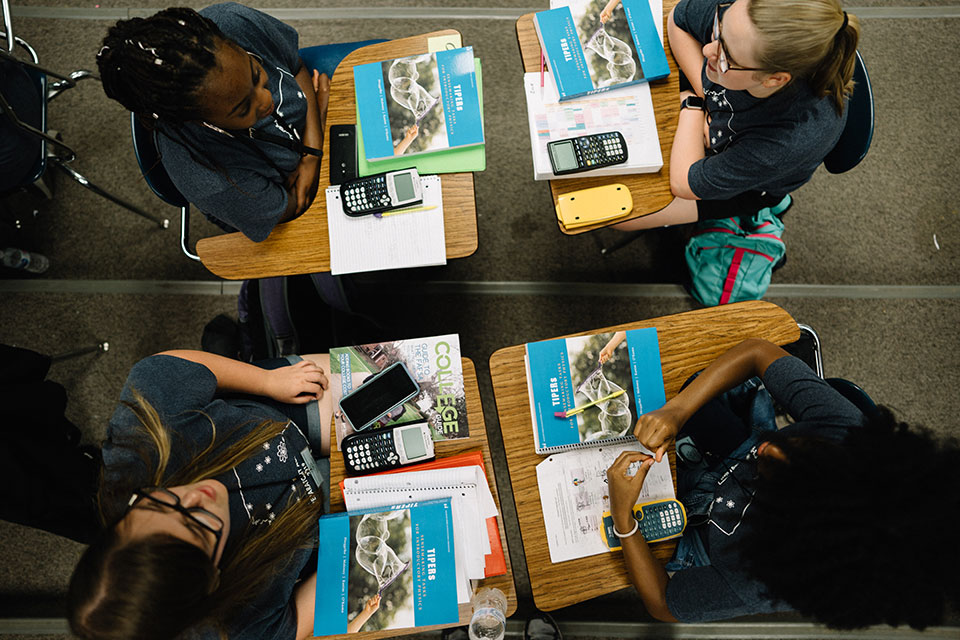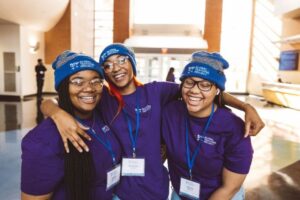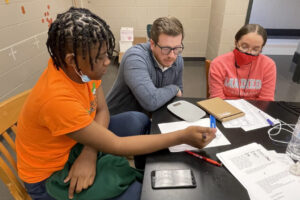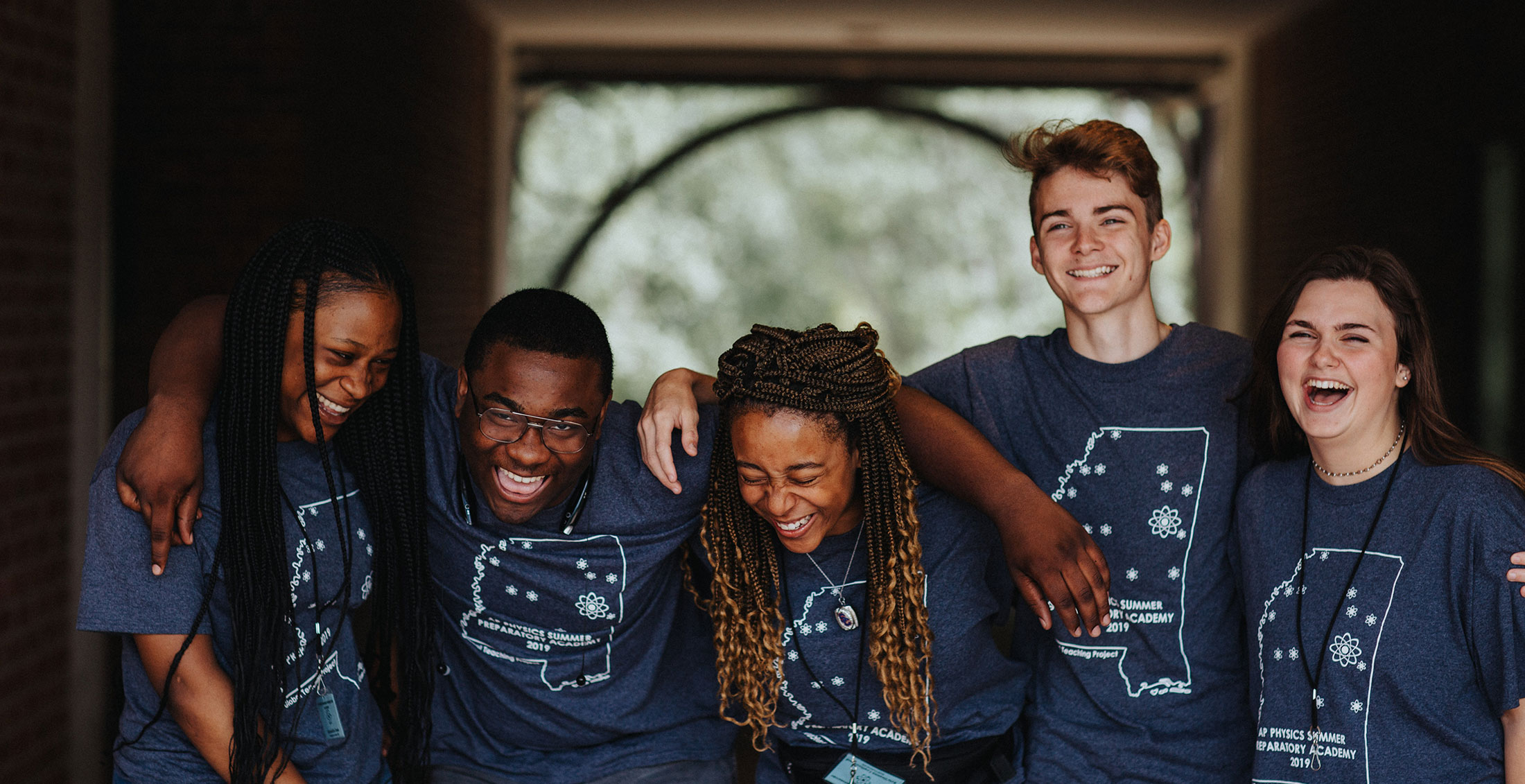
Update on our Advanced STEM Preparatory Summer Program at Mississippi State
We have passed the mid-point of our 2019 Advanced STEM Preparatory Summer Program at Mississippi State. To date, the program has gone very well.
Our 49 students, who are from 13 high schools, are engaged and attentive, and learning a great deal. They also are benefiting from a range of ancillary activities, and every one of them has begun their college applications under the supervision of successful applicants to some of the nation’s leading universities. Also, our students are in good spirits and seem to be having a lot of fun.
The summer program at Mississippi State has proven a very effective means of helping build that foundation and develop the study skills needed for the AP Physics 1 course—Mississippi State reported that students who attended the 2018 program “achieved dramatic gains in substantive understanding of course content, according to nationally recognized pre- and post-program assessments utilized by the American Association of Physics Teachers”.
This year’s summer program has multiple elements, each of which has gone well:
Immersive Math and Science Instruction
- The focus of the program is, of course, on immersive Math and Science Instruction. Each weekday, beginning at 8:00 am and often continuing until after 5:00, the students receive continuous instruction, both in and outside of the classroom, in key concepts that provide a substantive foundation for work during the school year.
- The core classroom sessions are led by two highly capable high school Physics teachers, who have provided extensive instruction in trigonometry, applied Algebra, graphing, kinematics, motion, and forces.
- Additional instruction also has been provided by the Mississippi State Physics Department, and, next week, students will participate in a class session with the Director of the Yale Center for Astronomy and Astrophysics.
- Nine tutors—STEM majors from Mississippi State, Yale, the University of Virginia, and Scripps—help the students understand the material and work through problems. The tutors also eat meals with the students, stay in the dorm, and participate in recreational activities, thus providing ample opportunities for informal consultation and mentoring.
- Students are divided into small groups—typically of four students each, comprised of students from multiple high schools. Each small group works collaboratively through problems under the close supervision of the instructional staff. Those problem-solving exercises comprise a large segment of the classroom sessions, and, with 11 instructional staff typically available, the ratio of instructional staff to students is less than 5:1, allowing for considerable individual attention.
- Numerous experiments and exercises emphasize implementation of the scientific method—observation, recordation of date, presentation of that data in mathematical and graphical form, testing of hypotheses, replication of results, and analysis.
- The lessons are reinforced by many experiments and exercises, conducted both in the classroom and outdoors (such as using trigonometry to measure the height of the main flag pole in the MSU drill field, or calculating motion, velocity, and acceleration through various tasks).
- Each student is being given a new copy of a comprehensive workbook, TIPERs: Sensemaking Tasks for Introductory Physics. The book, which the students keep after the summer program concludes, are designed to help promising high school students “develop a solid quantitative understanding of the concepts, principles, and relationships in physics.” Once the school year starts, the workbook will be supplemented by a textbook and online resources also produced by Pearson, the world’s largest educational publisher, which is based in the U.K.
College Applications
- Each of our students participated in one of three small sessions in which they began their college applications.
- Each student created an account for the Common Application, a college application form that is used by over 800 colleges across the country, including, among many others, all Ivy League colleges, Mississippi State, Ole Miss, Southern Mississippi, and Millsaps.
- Once a single Common Application (widely known as the “Common App”) is completed, it may be used for each participating school (though the applications also may be revised for particular schools if the applicant seeks to do so). Also, the application fees for participating colleges may be waived if any of various criteria are met.
- The information and essays used in the Common App also may be really adapted for use by schools that do not participate in the Common App program.
- Once each student created their Common App account, they began to enter information under the supervision of our college student tutors who themselves used to Common App to apply successfully to college—Brian (Yale), Oso (Yale), Savannah (Scripps), and Dom (University of Virginia).
- Students may continually revise and add to their Common App as they see fit. Each student was provided with a notebook to record their Common App log in information, and to make notes about items and ideas they may wish to include in their application.
- Alll students will participate in an informational session with Get2College, a program to help students plan, prepare, and pay for college sponsored by the Mississippi-based Woodward Hines Foundation. The Get2College representative conducts a lively program that goes into considerable detail about the application and financial aid process, and resources that are available to help promising students from rural communities attend, and excel at, college.
Tours, Demonstrations, and Speakers
- The summer program brings students to various facilities on and off campus, where they learn about various aspects of physics, as well as having an opportunity to interact with, leading scientists and prominent speakers. Already, students have participated in several such activities.
- Students met with Mississippi State University President Mark Keenum, who spoke with them about the importance of higher education, and the opportunities it can confer.
- The Mississippi State Physics Department presented a series of demonstrations and experiments that demonstrated various forces, electrical phenomena, and Newtonian principles in which the students were active participants.
- Students visited the Rainwater Observatory in French Camp, where they had the opportunity to learn about the university and use a series of very large, highly sophisticated telescopes—some of which occupy entire structures—to observe stars, planets, and other celestial bodies.
- Students toured the Jacob High Voltage Laboratory at Mississippi State—the largest in North America—where they observed and participated in several demonstrations relating to conducting and generating electricity.
- Students also visited the Mississippi State Center for Advanced Vehicular Systems, where they heard from experts and saw research being done relating to robotics and the materials, propulsion, and design for various advanced and experimental vehicles.
Recreation and Social Activities
- Recreation and social activities are a key component of the summer program and the learning process.
- Students are encouraged to get to know and work with other high-achieving students from across the state, and each small working group is comprised of students from various schools.
- The students eat as a group at all meals—during the week at Mississippi State dining halls, and on the weekend at local restaurants or at the dorm with food brought in.
- Students participate in supervised evening activities in Mississippi State’s state-of-the-art recreational facilities, where they have done rock-climbing, played basketball, and swam in an Olympic-sized swimming pool.
- Students have free time each evening to gather in the ample common space of their dormitory to socialize informally with other attendees and tutors.
- Weekend programs offer various opportunities to relax, recharge, and socialize over the course of various activities.
Our summer program concludes Wednesday, June 19th. That afternoon, we will conduct a brief program on the Mississippi State campus recognizing our students for their efforts. Further details will be provided in the coming days. Family, friends, and educators are cordially invited to join us for that event.
Thank you very much for your interest and support.
